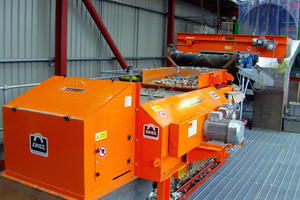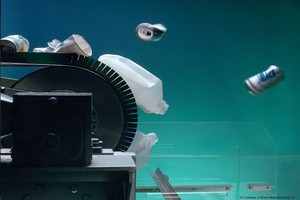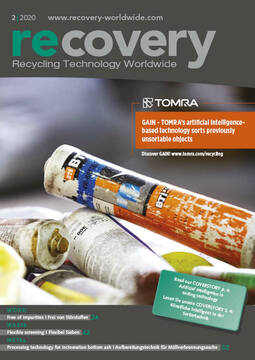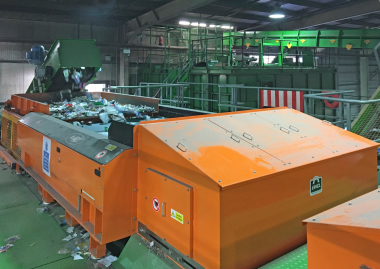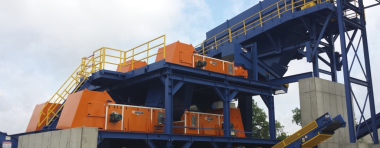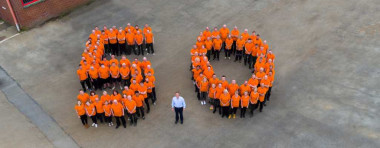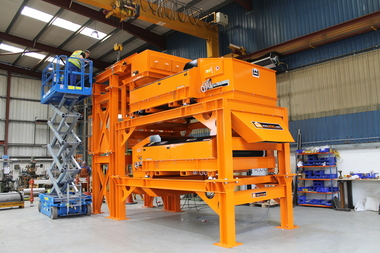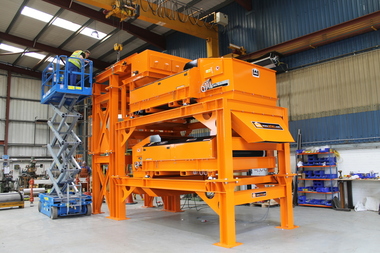Eriez stake in sustainability
With the ever-increasing interest in recycling methods due to our current inundation with pollutants, namely single use plastics, global pressure is now on to find a more sustainable method of existence.
Supermarkets are currently under instruction to change their approach to single use packaging, many businesses are trialling plastic bag-free stores and restaurants and bars are soon to be fined for providing plastic straws to patrons. These are just a few examples of the single use plastics that are contributing to a soon irreparable level of damage to our planet, illustrating why we are in vital need of smart recycling technologies to alleviate this urgent situation. Not unlike further afield, the UK government has voiced its pledge to restructuring recycling procedure, with the Environment Secretary calling for “simplified recycling across local authorities” where waste cannot be avoided.
Being situated just outside the Welsh capital, Eriez Europe is already highly familiar with the UK government’s renewed commitment to “[ensuring] producer responsibility and a consistent approach to recycling”. In terms of recycling rates, Wales is proudly taking the lead in the UK, with more than 50 % of municipal waste being recycled. However, it is a little-known fact that Wales stands just behind Germany for the percentage of municipal waste recycled in Europe – and Wales is ranked third on a worldwide stage, remarkable when taking in to consideration the size and resources of the nation. This goes a long way in substantiating the sustainability ethos embedded within Welsh government, community and industry. Presently, the Welsh government is moving towards a goal of “70 % of all waste to be recycled”.
Eriez Europe’s position as the only magnetic separation manufacturer within Wales, with dedicated recycling solutions, gives the company unique access to a wealth of local knowledge. This understanding of the recycling industry is also rooted in the foundation of Eriez Europe’s newly opened Recycling centre, giving customers from all industries the opportunity to see the results achieved by Eriez equipment before investing. Just under 50 ECS machines have been purchased this year alone, many of these to local companies. This could be attributed to the fact that increasingly over the past few years local authorities have started bringing recycling in-house, a number of these throughout the wider UK choosing Eriez Europe’s ECS to fulfil this task.
On a surface level, the driving force behind this move to process waste internally is a reduction of costs instead of outsourcing to contractors. However, perhaps more crucially, this shift hands more autonomy to local authorities over recycling quotas and overall quality; particularly relevant under increased pressure from government to improve recycling statistics. Wales currently collects approximately 50 % of all its dry recycling via the kerbside “sort collection system”, which is a valuable method of keeping contamination levels low. However recycling technologies like the ECS are relied upon to ensure effective removal of contaminants from recyclable materials.
According to recent reports, PET is the most commonly used and easily recycled plastic due to its airtight and rigid, yet flexible, properties which make it particularly suitable for use in the food and drink industry. Eriez Europe manufactures an expert module for separating PET flake from metal contaminants before it is reformed in to greener packaging. This specialised ECS has an ultra-thin belt to allow the material maximum interaction with the magnetic field, an adapted nose and splitter to ensure maximum degree of separation and other unique design features. The local demand for powerful recycling technologies, in combination with targets set by Welsh authorities to improve performance, indicates the possibility of Wales soon overtaking Germany in terms of recycling prowess.
Alongside the Eddy Current Separator, Eriez Europe boasts a wide range of magnetic separation and metal detection products which all take a unique part in recycling processes. This includes the suspended overband magnet which is frequently used in recycling applications to remove ferrous before it reaches the ECS, a key step in separating materials down in to specific groups to ensure effective recycling.

